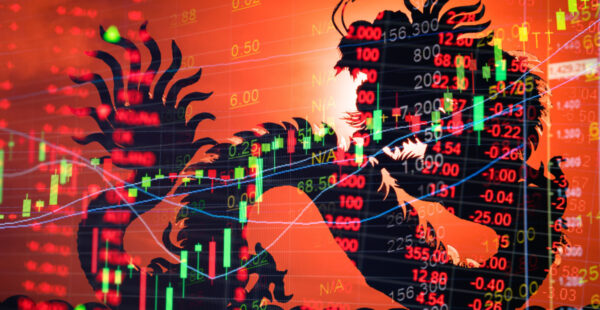Bias for Aussie ETFs leaves local investors with massive shortfall

Australian investors are likely to have missed out on substantial gains made in global equities ETFs over the last year, with local investors showing a clear preference for holding Aussie equities ETFs over their global equivalent, new data from the Australian Securities Exchange (ASX) and investment firm Vanguard have shown.
In dollar value terms, Australian equities ETFs received more than double the inflows of global equities ETFs – $5.3 billion versus $2.2 billion – despite the “strong gains recorded” in the global asset class, Vanguard data revealed.
In the year to 31 December 2023, Vanguard’s global equities ETF (Vanguard MSCI Index International Shares ETF) delivered 23.3% gross returns to investors; its equivalent Aussie equities ETF (Vanguard Australian Shares Index ETF, or VAS) returned just 12.0% over the same period.
Vanguard’s VAS proved the most popular domestic equity ETF in Australia last year, capturing nearly 11% of net market flow.
While Aussie equity ETFs this year saw a more than 20% jump in inflows from 2022 figures, its global equivalent saw a 15% – or $393 million – drop.
Adam DeSanctis, Vanguard’s head of ETF capital markets, Asia-Pacific believes Australian investors’ outsized preference for local ETFs may be in part “due to the familiarity of domestic companies or the view that offshore investments might be riskier”.
“This kind of home bias however can be costly, particularly as 2023 saw very strong returns from global equities. Investors who weren’t invested or had cashed out in 2022 when global equity returns fell therefore missed out on this extraordinary rebound opportunity,” he said.
DeSanctis added: “A well-diversified portfolio should include both domestic and international investments as these different asset classes will respond differently to the same market forces. This is essential to managing investment risks and portfolio volatility”.
Aussie investors were not entirely averse to globally oriented investments. Global fixed income recorded a nearly 50% surge in inflows over this period – from $783 million in 2022 to $1,560 million last year – with investors seeking to capitalise on a high-interest environment.
Expect another strong showing for Aussie bond ETFs in 2024
Australian investors poured $3.81 billion into fixed-income Exchange Traded Funds (ETFs) in 2023, a 37% increase on the previous year, as the rising interest rate environment made fixed income allocations more attractive.
A sticky interest rate is likely to benefit fixed income investors over the next year, according to Vanguard. While the firm forecasts a slight trim by the Reserve Bank in the second half of 2023, rates are not expected to drop substantially in the near term.
DeSanctis expects Australia’s interest rate to settle into the 3% to 4% range.
“While higher interest rates for longer might be painful for borrowers, they’re actually a good thing for investors over the long run, particularly for bond investors,” DeSanctis said.
We therefore anticipate bond ETFs to remain popular with Australian investors in the coming year, particularly as domestic bond return expectations have substantially increased since 2022 from 1.3-2.3% to 4.3-5.3% per annum over the next 10 years.
“Hopefully stabilising interest rates this year will also improve investor sentiment and we’re confident growth in the Australian ETF industry will continue”.











CPA doing the heavy lifting for the FPA?
On paper not too bad. Bill Shorten was far from the worst financial services minister. And experience in the Federal…
This guy loves Industry Super Funds. A former aide & lover of Bill Shorten. And his book is basically a…
As an employee who has lost super due to 2 small businesses, and as an adviser who has seen many…
Former adviser to Bill Shorten, when he was the Minister for Financial Services, He'll put us to the sword!